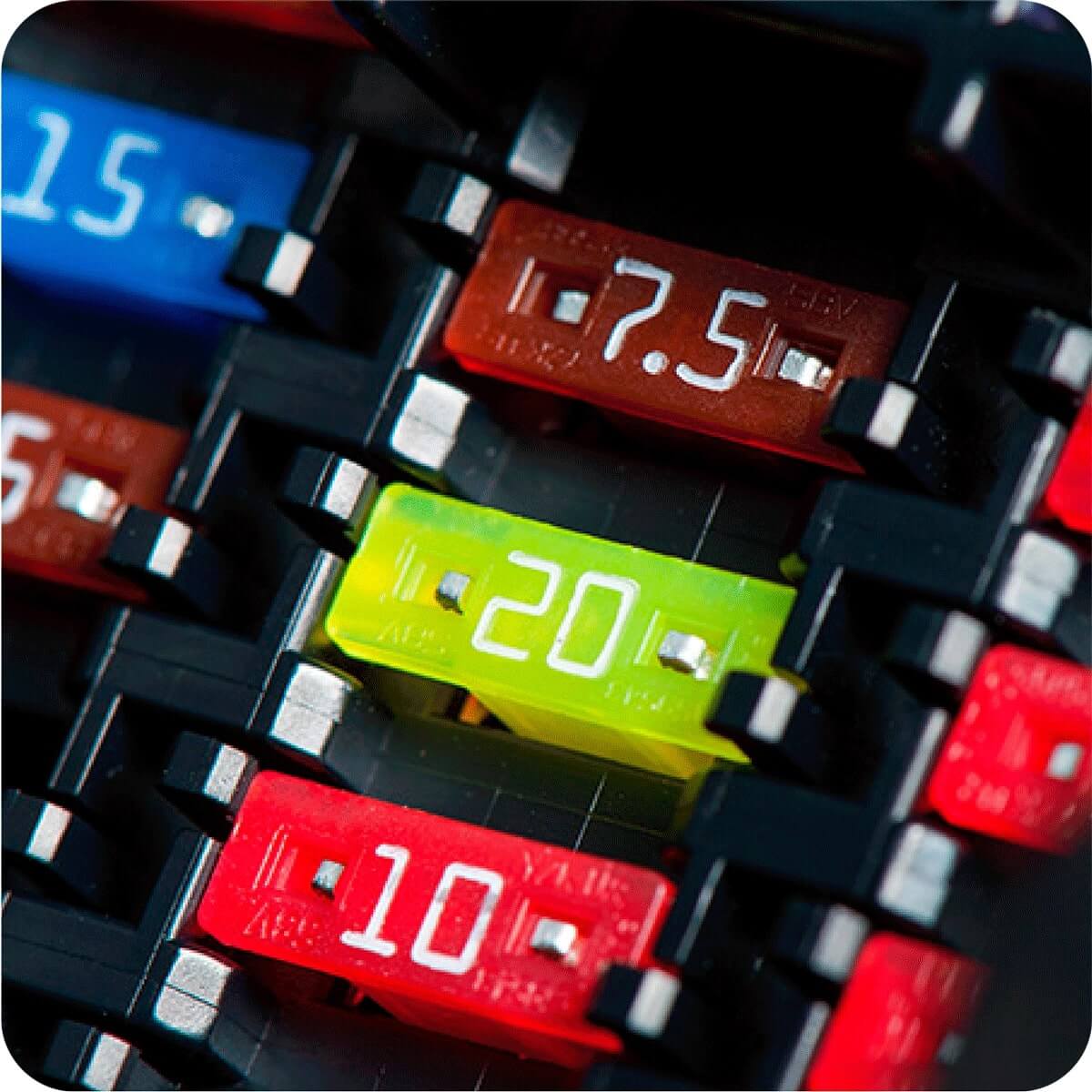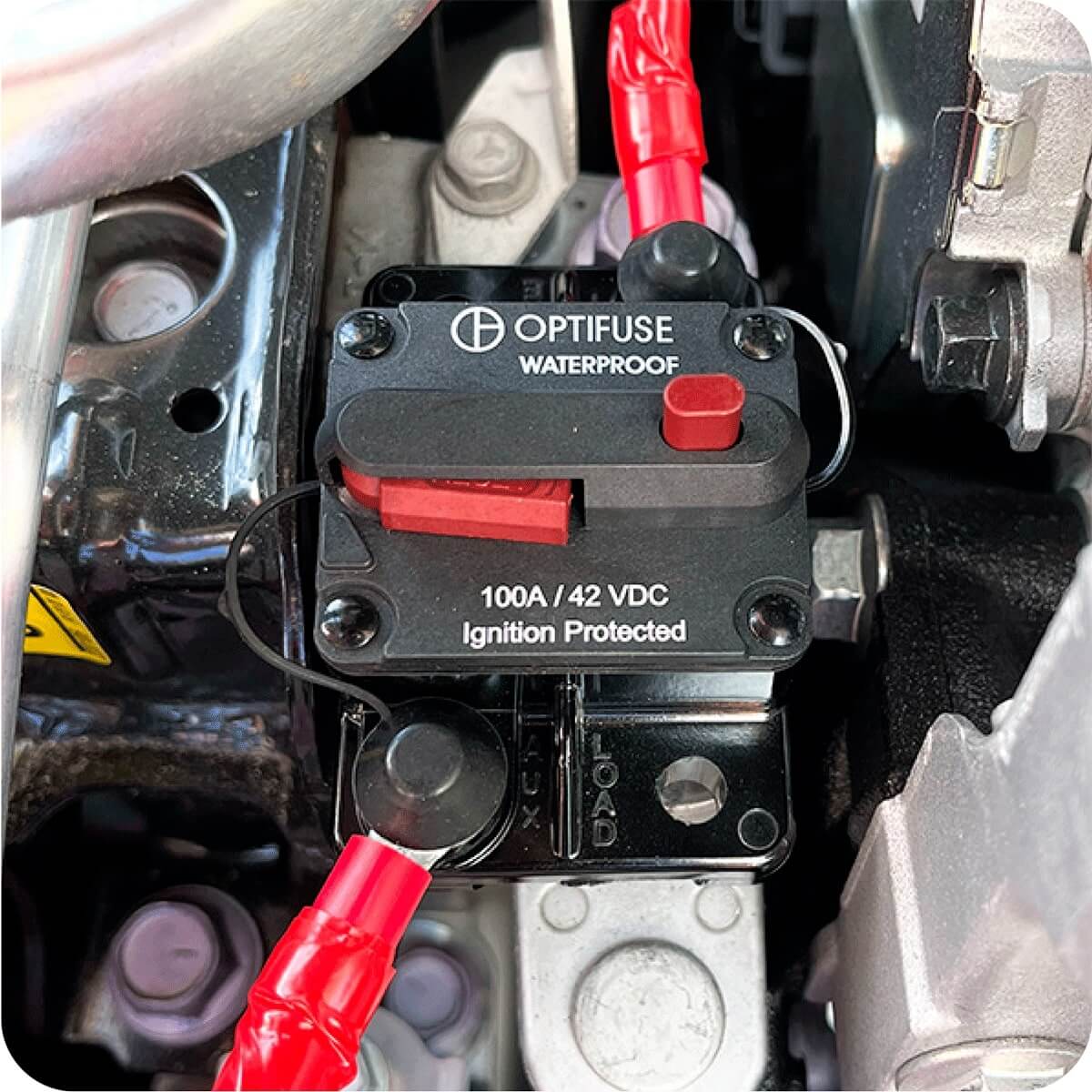Automotive fuse blocks manufacturer and distributor
Discover our selection of fuse blocks for automotive blade fuses
Automotive fuse block: everything you need to know about
Automotive fuse blocks are essential components in vehicle electrical systems, designed to consolidate wiring and protect multiple accessory circuits from overloads and short circuits. By allowing a single cable to supply power to various circuits, these fuse blocks enhance organization and efficiency. Some models feature modular build-out options, grounding tabs for applications with limited grounding locations, and LED indicators to easily identify blown fuses. Additionally, split-bus fuse blocks facilitate the protection of both 24-hour and non-24-hour circuits in one centralized location, ensuring reliable and safe operation of a vehicle’s electrical system while simplifying maintenance and troubleshooting.
Uses and applications of automotive fuse block
Automotive fuse blocks are essential for reducing the number of wires running from the power supply to various accessories. By enabling installation closer to the powered components, they allow for the use of a single larger wire, minimizing the need for multiple wires over long distances. This design streamlines the wiring setup and improves organization.
Additionally, fuse blocks are crucial for integrating aftermarket accessories like winches, alarms, and GPS units by providing dedicated circuits that can be easily managed.
Grounding fuse blocks are especially beneficial in marine applications or situations where appropriate grounding locations are limited, offering a centralized grounding point for more convenient connections.
FAQs
How do automative blade fuse blocks work?
Automotive blade fuse blocks operate by providing a centralized location for distributing power to multiple circuits while protecting each circuit with individual fuses. The main components include a positive stud that connects to the power supply, which feeds current into a busbar inside the fuse block. This busbar distributes power to various output terminals, each connected to a specific accessory or circuit.
When an accessory draws current, the corresponding fuse allows the circuit to function while safeguarding it against overloads and short circuits. If the current exceeds the fuse's rated capacity, the fuse blows, interrupting the circuit and preventing potential damage to the wiring or components.
In some designs, there may also be grounding terminals that allow for easy connection of all accessories to a common ground point, enhancing safety and reducing clutter in the wiring setup.
Overall, automotive blade fuse blocks simplify the wiring process, improve organization, and provide crucial circuit protection.
What are the advantages of using a fuse block?
Using a fuse block offers several advantages, including:
Protection of Multiple Circuits: Each circuit is equipped with its own fuse, providing targeted protection and preventing damage to multiple components.
Cleaner Wire Organization: Fuse blocks consolidate wiring, reducing clutter and making installations neater and more manageable.
Easy Fuse Replacement: Blown fuses can be quickly replaced, often with visual indicators to help identify which fuse has failed.
Isolation of Circuits: If one fuse blows, only the affected circuit is interrupted, allowing other circuits to remain operational, which enhances overall system reliability.
Modular Expansion: Many fuse blocks allow for easy addition of circuits, making them adaptable to various applications and future upgrades.
Centralized Grounding Solutions: Ground fuse blocks provide a convenient grounding point, especially in situations where suitable grounding locations are not readily available.
How do I choose the right fuse block for my vehicle?
To choose the right fuse block for your vehicle, consider the following factors:
Amperage Rating: Select a fuse block that can handle the total amperage of all circuits combined. Check the individual circuit requirements to avoid overload.
Blade Fuse Size: Ensure the fuse block accommodates the appropriate blade fuse sizes you plan to use.
Mounting Space: Assess the available space for installing the fuse block to ensure it fits your vehicle's layout.
Number of Circuits: Determine how many circuits you need to protect. This will guide you in selecting a fuse block with sufficient output terminals.
Grounding Options: Check if grounding is readily available in your vehicle or if the fuse block needs a grounding tab for easier connections.
Blown Fuse Indication: Decide if you require LED indicators for blown fuses, which can help with quick troubleshooting.
Circuit Types: Consider whether you need to protect both 24-hour circuits and non-24-hour circuits with the same fuse block, as some models offer split-bus configurations for this purpose.
By evaluating these factors, you can select a fuse block that meets your vehicle's specific electrical requirements and enhances overall safety and organization.
Can I use a fuse block with different types of fuses?
OptiFuse does not offer a fuse block designed for various fuse styles. However, you can install fuses with different amperage ratings within the same fuse block, allowing for flexibility in circuit protection while maintaining the same fuse style.
Are fuse blocks weatherproof?
OptiFuse does not offer automotive blade fuse blocks with weatherproof capabilities; however, they do include covers that protect against dirt, dust, and splashes. For applications needing full weatherproof protection, consider using an in-line fuse holder designed to meet the required Ingress Protection ratings.
See also

Fuses
Many styles of innovative, versatile fuses are available to protect circuits from dangerous overcurrents in automotive, electronic, and industrial applications.

Circuit Breakers
A comprehensive range of automotive, marine grade and line voltage circuit breakers to protect applications where resettability is needed.